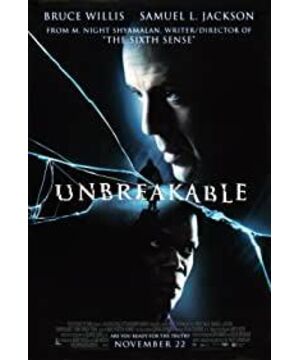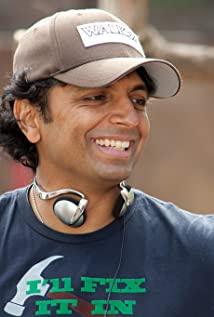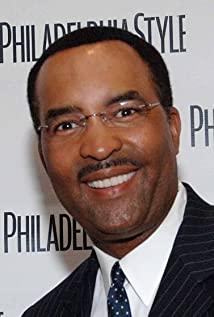This is a movie with a peculiar technique. Some people say that the last five minutes of the film can subvert the impression of the film formed by watching it over an hour before. Interestingly, some people said that the last five minutes increased the film from 3 points to 5 points, while others said that those five minutes were a big disappointment, from 5 points to barely 3 points in an instant. Okay, my feeling is that at first it seemed to be a dull movie that even made me feel a little puzzled. After watching it for the last five minutes, it made me feel a little bit. Then I watched it, watched it again, and gradually felt more and more. Something to say.
At the beginning of the film is a train derailment incident, the incident brought out the protagonist-the only unscathed survivor University Gymnasium guard David Dun. One day after the accident, David found a small card on the windshield of his car with only one sentence "How many days of your life have you been sick?" Following the card, David found Elijah . Elijah suffers from osteogenesis imperfecta. He had multiple fractures just after he was born in his mother's stomach, and his hands and feet were broken. He was even more fragile as he was growing up. If he was careless, he would fracture. So other children called him " Mr. Glass".
Under the encouragement of his mother and the influence of the heroes in the comics, Elijah overcame 54 fractures in his growth, and perhaps even more inner inferiority and torture, and became a successful comic collector. Elijah believes that if there are people who are as vulnerable and vulnerable as him in the world, there must be people who never get sick, never get hurt, and are born to protect and guard the world, just like the heroes in the comics.
Under the guidance of Elijah, David gradually admitted and accepted the fact that he is the one who has never been ill, never injured, can surpass the limits of ordinary people, can prevent evil and defend the world. Accepting me like this, David wakes up every morning and his heart is no longer full of sadness.
This was a good ending. It made me think that the film would end here, but it didn't...
David went to participate in the comic exhibition held by Elijah and walked into Elijah's studio. There, he made an amazing discovery. This is the last five minutes that made many viewers feel the reversal.
When facing David’s surprised and painful eyes, the fragile Elijah who was called the "glass doll" from birth said:
"Do you know what's the scariest thing is? To not know your place in this world, to not know why you are here. "(Do you know what the scariest thing in the world is? That is not knowing where you belong, not knowing the meaning of your existence.)
"Now that we know who you are... I know who I am. I'm not a mistake. It all makes sense."
(Since we know who you are, I also know who I am. I am not a mistake, everything makes sense.)
Finally, when he said Maybe he had thought of that sentence thousands of times in his heart, feared a thousand times, and denied a thousand times, "They call me Mr. Glass." My heart is as full as David waking up every morning. sad.
It turns out that this whole story-everything David suffered, and the sacrifices of many other people, was just because there was one person who wanted to truly find an answer-who am I?
And the path he was looking for was to find the person standing opposite him. Since you are there, then I know where I am and the meaning of my existence.
who am I? what is the meaning of life? Where am I in the vast sea of people?
Each of us has encountered these problems more or less at some point in our lives.
Erickson, the representative of American neo-psychoanalysis, believes that these problems can be called "self-identity" problems. That is, individuals have a solid and consistent perception of who they are, where they are going, and where they are in society.
For many people who are not psychologists and philosophers, this may not be a big problem. But for Elijah, a child who has been facing physical defects since he was a child, has kept himself in the house, and lacks the role of father in his life, this must be a set of questions that need to be constantly asked and searched for answers— —Otherwise, since I am so fragile and life is so difficult, what reason do I have to stick to?
The thirteen-year-old Elijah was full of grievance and despair. When he closed his lips and hid in the room, his heart must be full of such doubts and conflicts.
Such doubts and conflicts are normal at the age of thirteen. With the arrival of the physical development period, adolescent teenagers will pay special attention to their body image. For children at this stage, “one of the most difficult tasks is to adapt to their physical appearance characteristics by forming a realistic and acceptable body image (personal subjective evaluation of their appearance).”
But obviously, Elijah's easily broken body and countless long and lonely days spent in the hospital made this task very difficult.
In Erickson, he used the "identity crisis" to describe this kind of self-identity troubles that lie in front of sensitive and nervous teenagers, and the confusion and anxiety experienced when facing the problems that humans have always faced. Although this is a difficult time for young people, just as the word "crisis" implies literally, it brings both danger and an opportunity-growing individuals use this to explore, choose, test, and Establish your own outlook on life, values and ideals, career, and gain a sense of self-identity. Eriksson believes that once a sense of identity is obtained, it means that the development tasks at this stage of adolescence have been satisfactorily resolved, and the personality will develop in a healthy direction, otherwise there will be a psychosocial crisis and an unsound development. Personality.
Erickson explained the problem of crime by saying, "If a child feels that the environment he is in deprives him of all the possibilities of self-identity in future development, he will resist the social environment with surprising strength. In humans In the jungle of society, without the feeling of identity, there is no existence of himself. Therefore, he would rather be a bad person, or simply live like a dead person than be an indecent person. He chooses all this freely."
Or his other more concise sentence is more suitable to explain Elijah's choice-for these suffering souls, it is better to become someone you don't want to be than to have no identity at all.
In fact, from a certain angle, Elijah is lucky. Although there are not many scenes of his mother in the film, we can see that her mother is raising him with all her heart, and she successfully pushed him out of her small space by giving him gifts. It is also from the comics that he gained a power, invented a set of theories about the meaning of the existence of himself and others, and was obsessed with confirming his theory. It is this kind of persistence that allows him to escape from the fierce conflict and low self-esteem in his heart. By looking for his opponent, the other pole on the scale, he can cause the external demon and the hero to confront each other, thus gaining The sense of self-identity (demon) also gains relief.
Unfortunately, this sense of identity is a negative sense of identity, a dangerous anti-social role.
And is his liberation the real liberation? I didn't look at the last five minutes, I thought it was, and it was very inspirational.
But in fact, he could not be liberated, or in other words—he might not want to be liberated.
We suffer because we like suffering.
Because liberation means that you have endured pain, accepted the pain and went elsewhere. And there is nothing peculiar about this, this world is already suffering, and the world has always been going forward like this.
While staying in the pain, you can clearly and profoundly feel your own existence and feel your own uniqueness. This is derived from low self-esteem, but also arises from narcissism to resist low self-esteem. Therefore, regardless of all the other possibilities in his life that have happened and will happen, he insists on confining himself to the role of "Mr. Glass". Not only that, but he has to find the Unbreakable man by creating various tragedies to prove his correctness and the meaning of existence.
View more about Unbreakable reviews











